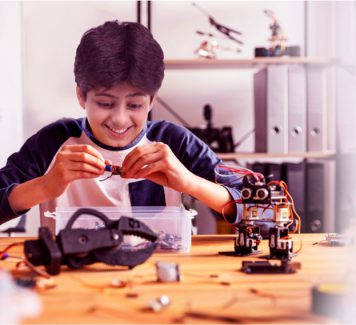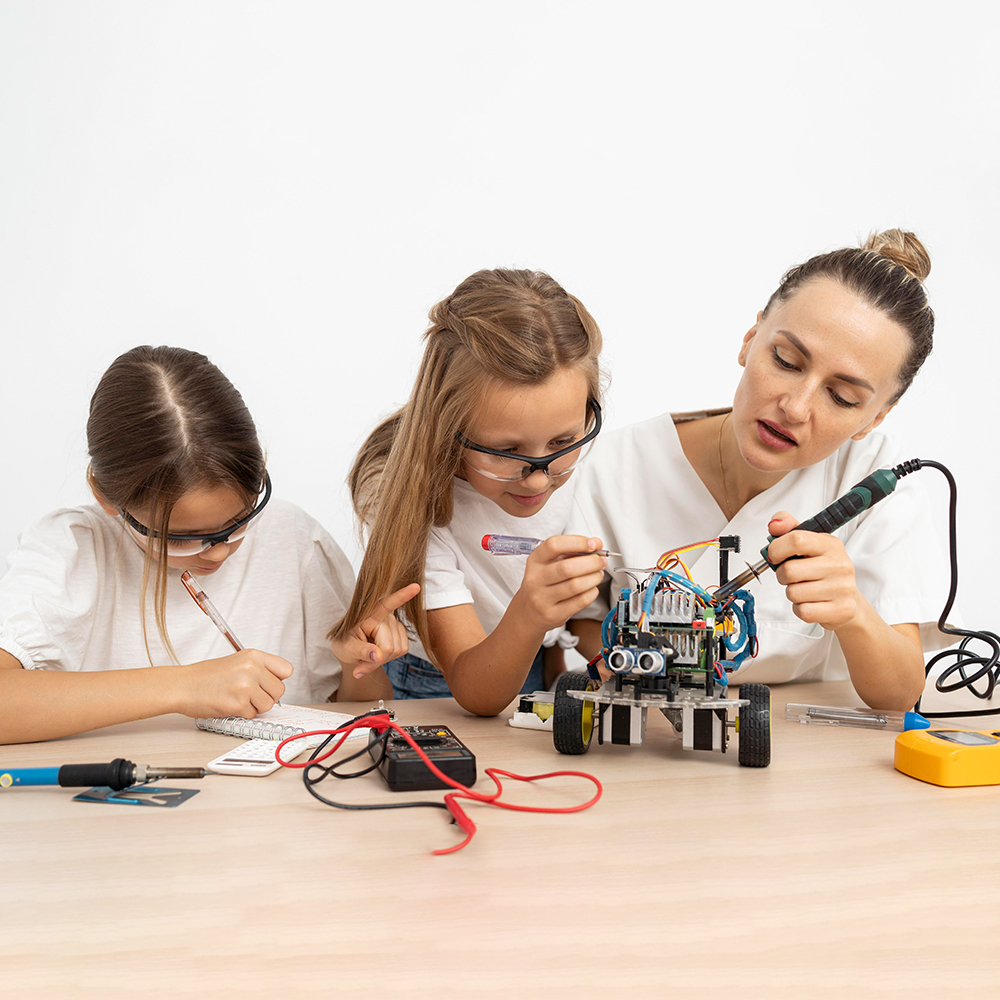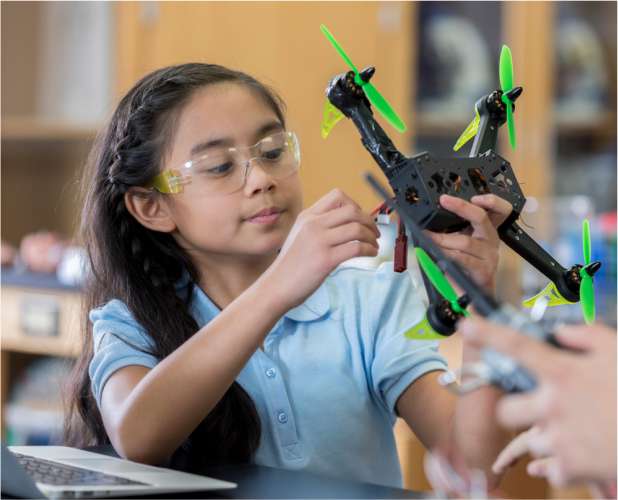A 1991 meta-study examined “the impact of programming on cognitive outcomes” and discovered that students with computer programming expertise outperformed students without by 16 percentile points on cognitive ability tests.
Furthermore, it is apparent that coding knowledge helps youngsters prepare for their futures in university and employment.
While these are powerful reasons to begin your child’s coding adventure, the advantages of learning to program extend far beyond boosting abilities or obtaining employment.
According to studies, the ability to do coding feeds the brain in fascinating and powerful ways.
1) Fosters Problem-Solving & Enhances Creativity
Coding teaches kids how to break down big issues into smaller chunks and solve them. Mastering this process, known as decomposition, is a valuable life skill for those who want to pursue a career in technology or any other industry. Making mistakes, putting work through its paces, and fixing faults offer children the courage to persevere in the face of adversity.

Studying to code improves problem-solving skills, which also teaches youngsters how to deal with stress. When children learn to program, they learn to solve issues with perseverance and innovation. Deficits in social problem-solving have been linked to a higher risk of anxiety and depression, according to research. In fact, problem-solving training is frequently used to alleviate depression in children and adolescents.
2) Guaranteed Social Skills Enhancement
In the workplace, programmers work as effectively in a team that interacts and collaborates to achieve common objectives. No single individual is responsible for the entire product; in fact, collaboration and communication abilities are identified as top requirements for firms looking to hire programmers.

Collaboration is possible for children when they are working toward a common objective. This promotes the development of higher-level interpersonal abilities like bargaining and creating relationships.
3) Improves Child’s Logic Development & High Order Thinking:
Coding teaches young learners the logic behind the things and give them fundamental knowledge about how things work in real-lives. It promotes high order thinking and give kids an ability to think outside the box. For example, a sensor is used in a robotics project. With the help of coding, the students will be able to understand What is a sensor? How a sensor is used is your project? Which type of sensor you are using? and so on. They will be aware about the real-life applications of sensors and understand how all of the things come together and function together.
4) Programming Promotes Brain Health
A 2013 study discovered that only particular types of mental engagement, notably high-demand cognitive tasks including learning and intellectual difficulties, contribute to sharper brains.
Learning to code initiates far more complex and comprehensive brain capacity. Coding stimulates a multiple demand network in the brain, according to MIT neuroscientists. The activity of this network is distributed across the brain and is employed for activities that need several bits of information to be held in mind at the same time. It’s also in charge of our ability to do a wide range of mentally demanding tasks.

Studying code can be compared to learning another language, and it may appear that the language processing section of the brain is responsible for the interpretation of symbols and information. Computer programming exercises the left hemisphere because it utilizes the same abilities as solving complicated arithmetic problems.
Reading programming code, in fact, appears to stimulate both the left and right hemispheres of the brain, enhancing multitasking abilities, increasing working cognitive performance, and preparing the brain for sophisticated problem-solving.
5) Allow Students To Focus Towards A Goal
Coding is thought to engage “five brain areas associated to working memory, attention, and language processing,” which may improve the learning process, according to a study led by Dr. Janet Siegmund.
Not only does coding help with computational problem solving, but it also helps with supporting executive processes like organization and impulse control. Children with good response inhibition abilities can exercise self-control and concentrate on difficult activities.
Early infancy is when these talents grow the fastest, and they continue to develop until maturity. These abilities do not come naturally; rather, they are acquired via experiences and effort.
6) Coding Promotes Hands-on Learning
In theoretical learning, the children require their parent’s help to learn. If the students learn through STEM education, they will learn to build real-life projects on their own. This happens because STEM education is purely based on teaching young minds with hands-on learning approaches.

These approaches are beneficial for kids as they learn about real-life concepts through practice on their own, and they require less help from their parents.
There are courses in the market that uses STEM kits as a part of play-based course curriculum.
How Learning to Code Is Essential In Early Years?
Learning to code increases a distinct combination of skills that promote mental wellbeing, learning capabilities, social competence, and executive functioning, much as studying any new language stimulates the growth of new parts of the brain and enhances learning and memory capacities.

With so many compelling reasons to educate kids to code, it’s no surprise that 79 percent of parents prefer their kids to learn to code at an early age.
Finding a complete coding course, on the other hand, may not always begin in the classroom. Only around half of all secondary schools in India provide computer coding courses.
Summing Up!
Outside of a traditional classroom context, there is a range of options for learning how to code. Primary school classes begin at the age of eight. Small group teaching with real teachers delivers the entire curriculum and interpersonal communication required to build social, cognitive, executive functioning, and problem-solving abilities that prepare students for long-term success.
If you want to choose the best coding class for your kid, the search ends here.
 1890
1890

